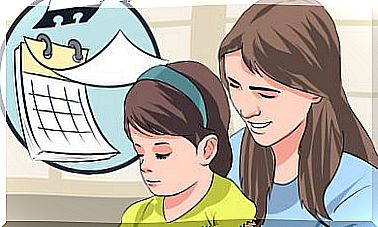Why Is My Teenager So Rebellious?

Do you ask yourself, ” Why is my teen so rebellious?” Adolescence is a very stigmatized stage. Parents fear it and we all assume that young people at this age become unmanageable. Therefore, the stereotype of the rebellious youth is part of the collective imagination and we constantly try to avoid or calm these behaviors. If your child has passed puberty, you may have noticed changes in his attitude. In some young people, the behavioral changes are more remarkable than in others, but in both cases the patterns are similar: defiance of authorities, questioning norms and opposition to parents.
All of these are natural behaviors that are typical of this stage. But when we are not aware of them in advance, they can cause confusion and suffering in parents. In order for you to be more prepared for your child’s adolescence, we will explain to you what these changes in behavior are due to and how we should follow them.
Why is my teen so rebellious?
Although you may have thought differently, your teen is not rebellious because they want to annoy you or make you uncomfortable. Nor do they act in this way due to lack of upbringing or changes in their personality.
Below we show you the main reasons that can lead to your child becoming rebellious.
They suffer from the stress of all the changes
First of all, you need to understand that it is not easy for young people to go through this stage. Suddenly , they face a host of changes, physical, emotional and social pressures that did not exist before. Learning to deal with this new reality can be confusing and complicated.
In fact, they often feel overwhelmed and react inappropriately to stress : They become irritated, reactive, or more moody than usual. But this is nothing but the result of an internal conflict that they can not handle.
We can not lose sight of the fact that hormones cause sudden changes in mood. In addition, adolescents’ cognitive development has not yet been completed, so they are not yet able to control their impulses or measure the consequences of their actions as an adult.

They claim themselves as a person
When teens defy their parents, break rules, or oppose authority, we label them rebellious or disobedient. But their attitude is actually understandable in a way.
How would you react if someone told you how to dress, what music to listen to, or when to use the phone?
If someone else tried to force themselves on such essential issues in your life, you would also rebel. And while it is clear that young people are not yet adults and that they need boundaries, their position is understandable: They no longer feel like children.
For this reason, a youth is rebellious insofar as their parents practice an inappropriate pedagogical style.
The less you listen to them, the more you take to punishment, and the more your orders overshadow the dialogue, the more likely your child is to rebel. And this will happen as a way to defend themselves as a person and to protect their right to be who they are.
Teenagers seek independence
Some parents are anxious when their teenagers withdraw from them physically and emotionally, either do not want to spend time with the family or are not as loving as they used to be.
However, this is a natural and healthy thing to do. During adolescence, the family ceases to be the main reference for young people and their peer group takes a leading role.
Therefore, it is normal for your child to want to spend more time with their friends, spending several hours talking to them. So seek their approval instead of yours. Try not to take these events personally or as a rebellion, as they are changes that are necessary for their maturity.
They may have a mental disorder
Despite all of the above, it is important to remember that rebellious behavior can result from suffering.
If these challenging, annoying or aggressive attitudes occur to an excessive degree, it is possible that the young person is facing a psychological illness. Anxiety, depression or bullying can be hidden behind these behavioral changes and should not be ignored.

Why is your teen so rebellious? It is part of their growth
As you can see, rebellion is a normal part of adolescence. We do not necessarily have to regard it as something negative. If it remains within the expected limits, it is only a sign of a healthy development of the young personality.
So arm yourself with patience and understanding. Promote dialogue to follow your child as he or she goes through this stage of his or her life. Instead of branding them as rebellious and blaming them for their behavior, try to guide them and help them deal with their emotions. And if you think there may be an underlying problem, do not hesitate to consult a professional.









